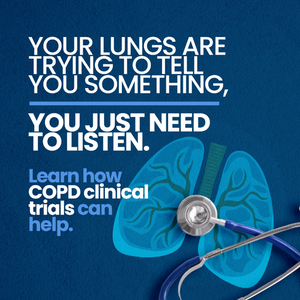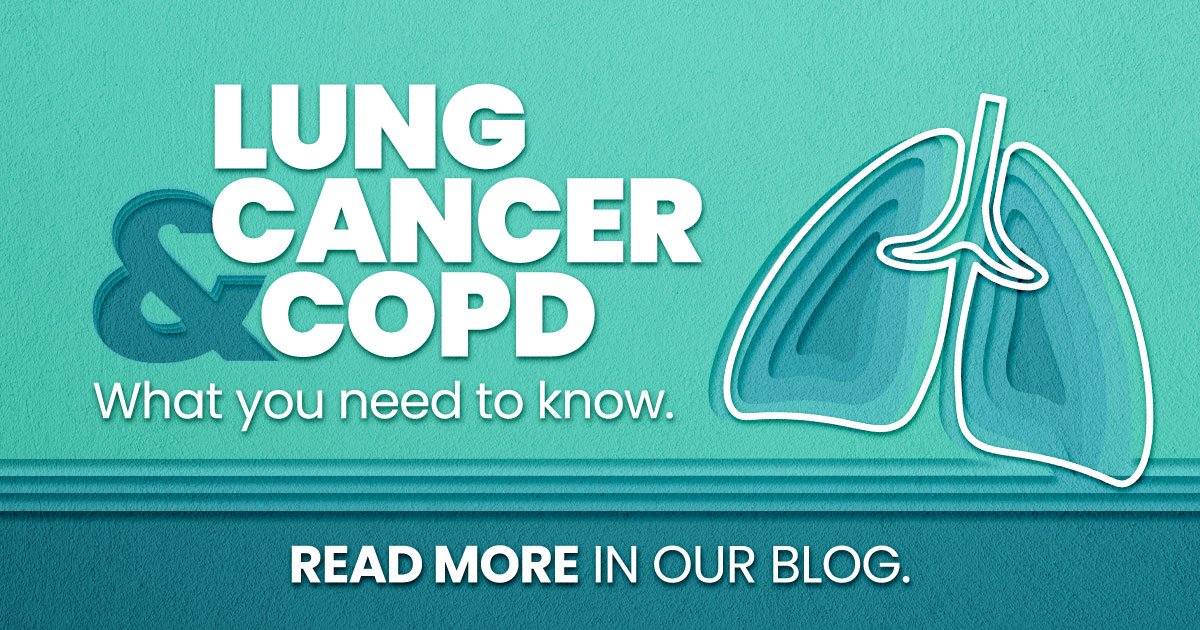Lung cancer continues to be one of the most prevalent cancers worldwide. Chronic obstructive pulmonary disease (COPD) is a chronic lung condition mostly found in smokers. Not everyone with COPD will develop lung cancer, though having COPD does increase your risk. August 1st is World Lung Cancer Day. The annual celebration supports those impacted by lung cancer and raises global awareness about its risk factors and the benefits of early treatment. Anyone can get lung cancer, but for those with COPD, the risks can’t be ignored.
Lung Cancer and COPD
COPD is a significant risk factor for lung cancer because they both share common causes. These include smoking and premature lung aging. Research data consistently shows a clear link between COPD and lung cancer. Individuals with COPD are more likely to develop lung cancer, and those with lung cancer are more likely to develop COPD.
It’s not fully understood why the two have such a strong association. Still, researchers believe that several factors interact with one another to increase the risk of lung cancer in people with COPD. While it’s clear smoking poses a significant risk, other theories that may explain the link between the two conditions include:
- COPD-related lung damage: COPD significantly damages the lungs, getting progressively worse with time. This damage may raise lung cancer risk by increasing the likelihood of abnormal cell growth.
- Genetic susceptibility: Research has identified several genes that may increase COPD or lung cancer risk in people who smoke.
- Inflammation: Chronic lung inflammation is linked to both COPD and lung cancer. The repair process that inflammation triggers may further raise the risk of both COPD and cancer.
Celebrate World Lung Cancer Day. Stop Smoking and Join a Study!
By learning the risks and associated links between COPD and lung cancer, you have contributed to the efforts that drive World Lung Cancer Day. You can continue to make a difference by joining the global movement to end lung cancer through programs such as Lung Force or contribute financially or as a volunteer towards supporting more research for efforts to protect people from lung cancer.
We need research to continue to better understand the relationship between COPD and lung cancer. Eventually, we may discover treatments that could work for both. Quitting smoking is one of the most important things you can do if you have COPD, lung cancer, or both. It stops further lung damage, lets you breathe easier, boosts your immune system, and helps you fight back against lung cancer risk.

You can also consider becoming a participant in clinical research studies to help further advance medicine for COPD. To learn more about enrolling COPD studies here at North Georgia Clinical Research, call (678) 494-5735 or visit our website today!
Sources:
https://www.healthline.com/health/copd/copd-and-lung-cancer#research
https://www.medicalnewstoday.com/articles/325617#research
https://www.daysoftheyear.com/days/world-lung-cancer-day/


